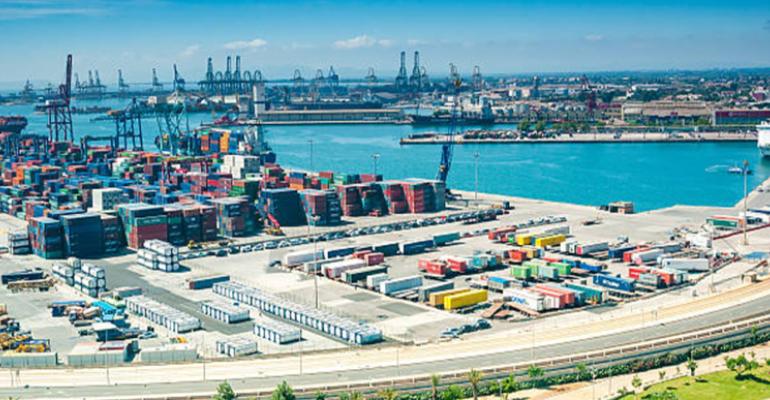The ETS is set to be applied gradually from this year until its full implementation in 2026.
“It must be ensured that there is no carbon leakage linked to the reorganisation of the maritime networks,” the PAV alleges.
In their statement PAV said, “We understand the EU must pay due attention to the evolution of other ports located in the Mediterranean area, as they have installed operational capacity that makes them potential enclaves to which important volumes of transshipment could be diverted.”
By adding more ports to the current list, the PAV hopes to protect the competitiveness of EU ports, safeguard the transhipment business, avoid carbon leakage, and ensure there is no diversion of ships to non-European ports.
Major ports in Europe are already recording substantial declines in cargo. The Port of Valencia has not been spared, posting a 10% teus decline after handling 5.1 million teus in 2022 and 5.6 million teus the previous year.
Furthermore, it alleges in its complaints that environmental taxes should be levied on ships that stop there. In this way, the competitiveness of the European and Spanish ports would be guaranteed and the application of measures in favour of the reduction of emissions would be assured.
This rerouting would result in a loss of competitiveness for EU ports, reducing present transhipment business to two ports outside the European Union: Tanger Med (Morocco) and East Port Said (Egypt).
As a result, “the Port Authority of València is in full agreement with the inclusion of both under Directive 2003/87/EC of the European Parliament and of the Council,” according to its charges.
“We understand that the EU must pay due attention to the evolution of other ports located in the Mediterranean area, as they have installed operational capacity that makes them potential enclaves to which important volumes of transhipment could be diverted,” the PAV said.
The ETS will apply to all shipping companies operating vessels of over 5,000 gross tonnages, regardless of their flag or ownership, and will cover emissions from voyages with EU territorial waters as well as from voyages between EU and third countries.
PAV asserts that the ETS will heavily impact ports in Europe, since shipping lines will avoid the bloc to escape the liabilities that come with the tax - significantly reducing transhipment business in the bloc.
The ETS could also benefit competing ports outside the bloc, who could receive more business as ships change their routes.
Copyright © 2024. All rights reserved. Seatrade, a trading name of Informa Markets (UK) Limited.
Add Seatrade Maritime News to your Google News feed.  |

